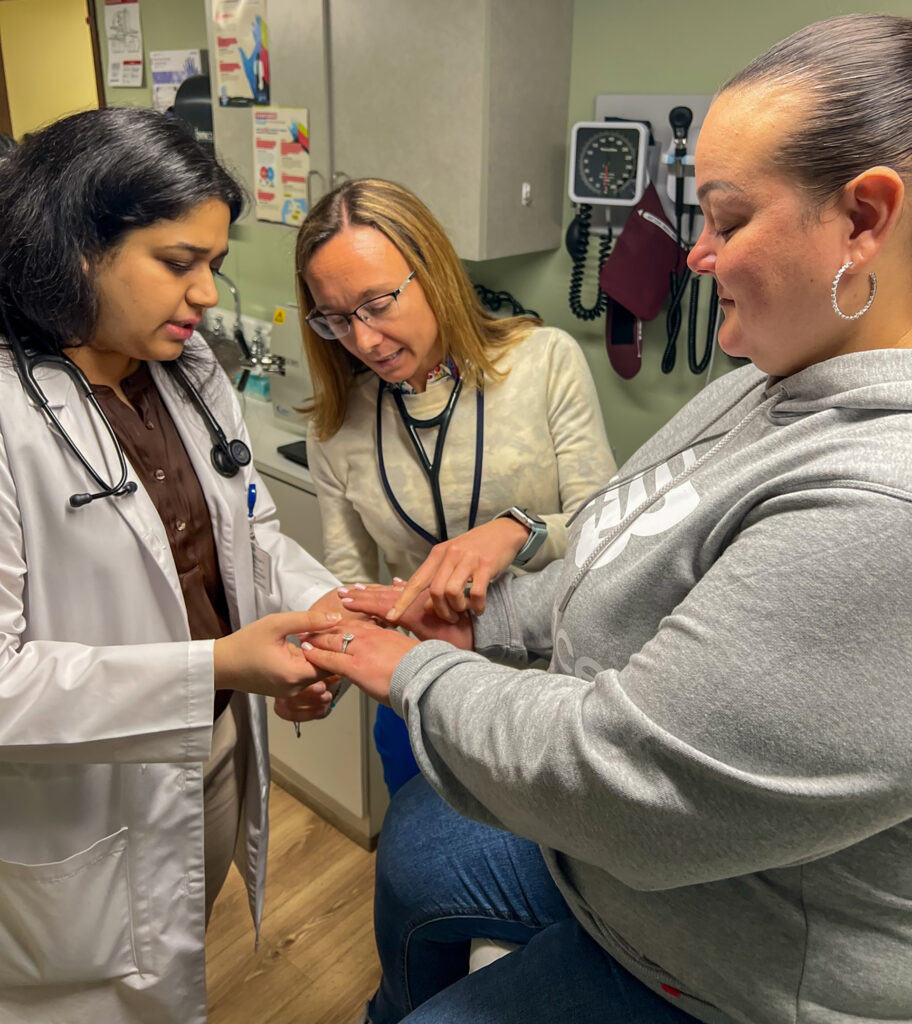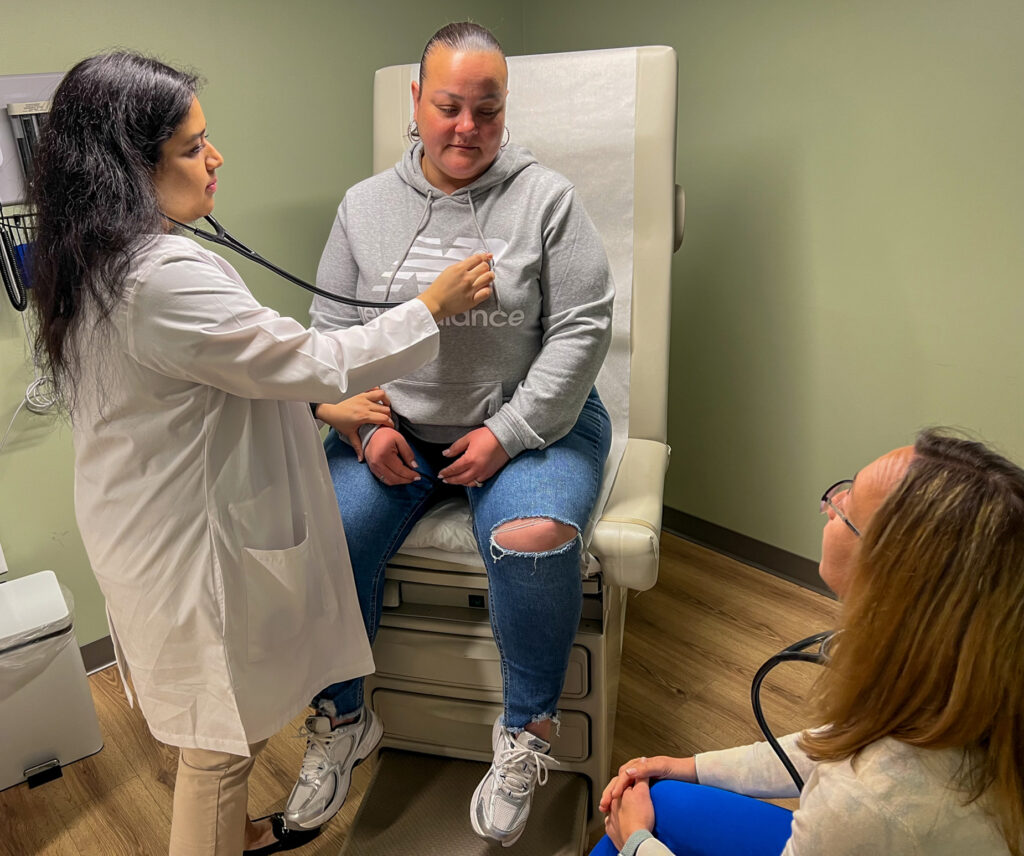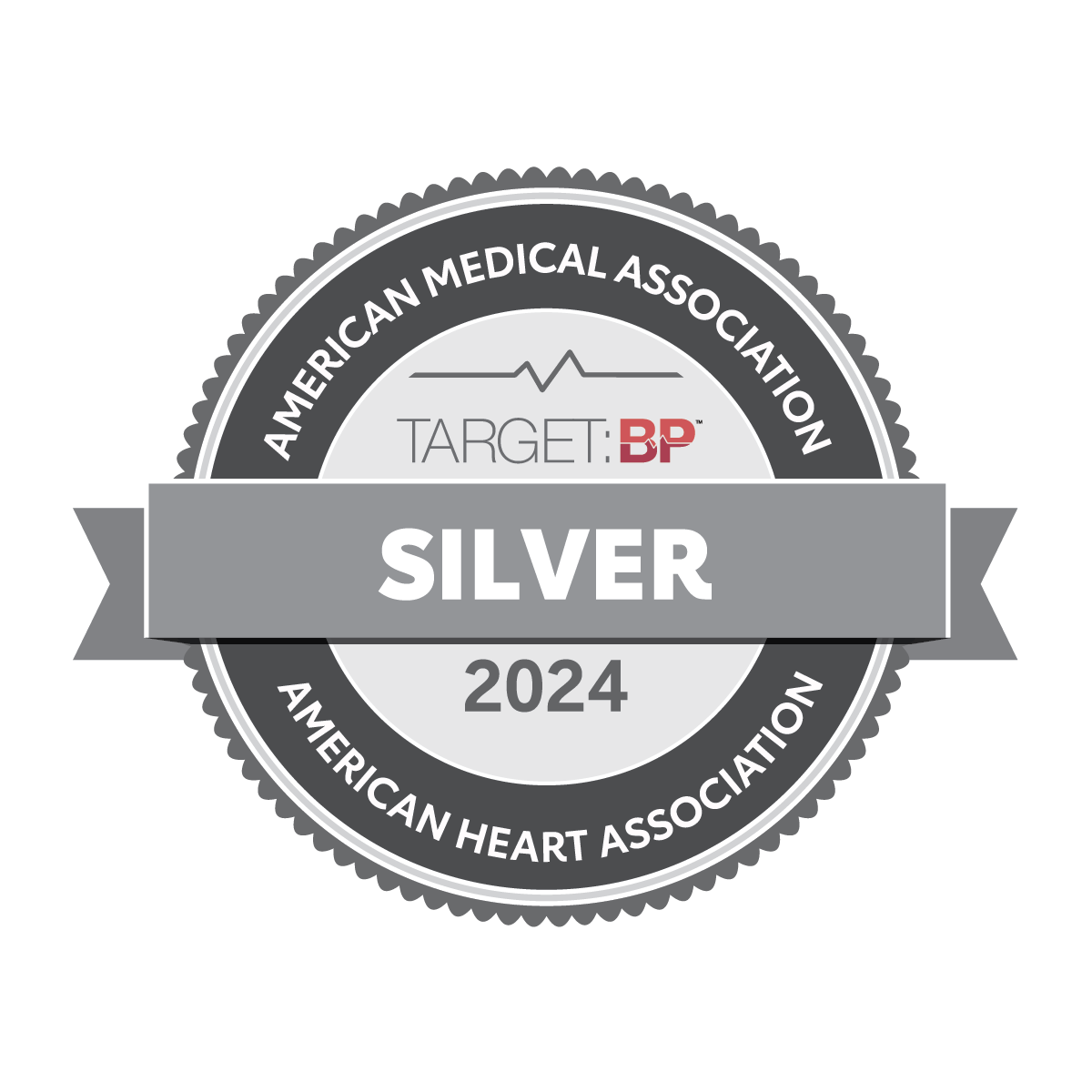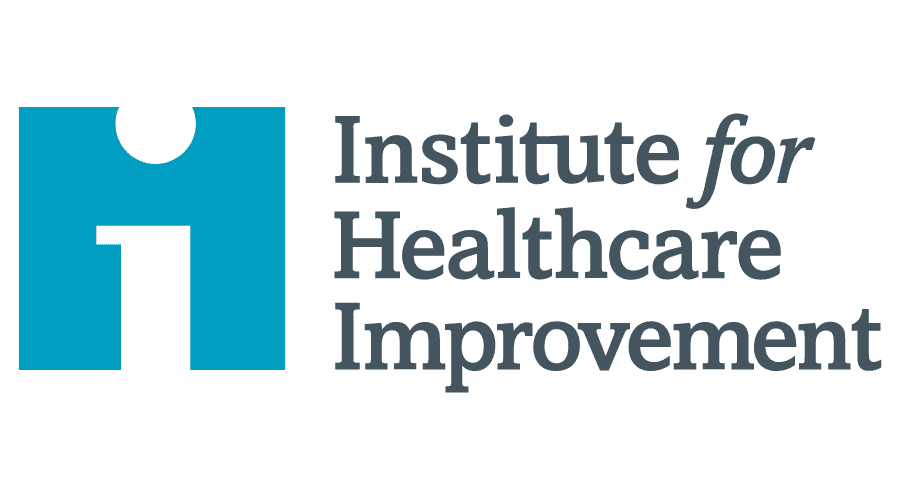News
The Wright Centers for Community Health and Graduate Medical Education improving patient health with new ‘care team’ approach

Dr. Erin McFadden, center, collaborates with Dr. Ketaki Pande, a resident physician in The Wright Center for Graduate Medical Education’s Internal Medicine Residency, during an examination with patient Nicole Ammons at The Wright Center for Community Health – North Scranton. Drs. McFadden and Pande see patients together as part of The Wright Center’s new program that places medical residents on care teams to elevate the standard of care for all patients.
The Wright Centers for Community Health and Graduate Medical Education have launched an innovative program to enhance patient care while nurturing the skills of tomorrow’s physician workforce.
Medical residents at The Wright Center for Graduate Medical Education are now members of “care teams” that provide whole-person primary health services to people of all ages, income levels, and insurance statuses. The novel initiative elevates the standard of care provided at The Wright Center’s nine community health center locations in Northeast Pennsylvania while providing a platform for residents to refine their skills as compassionate healers.
By seamlessly integrating hands-on experience with comprehensive training, the program embodies The Wright Center’s mission.
“Patients get two sets of eyes – the resident and the doctor,” said Dr. Timothy Burke, a primary care physician at The Wright Center for Community Health – Mid Valley in Jermyn, Pennsylvania, and the associate program director of The Wright Center for Graduate Medical Education’s Internal Medicine Residency. “Seeing the same resident and the same doctor each time means the patient doesn’t have to repeat their medical history over and over. Both know who you are, the care you’re receiving, and the obstacles you face.”
Patients will benefit from building personal relationships with The Wright Center’s resident physicians, according to Dr. Erin McFadden, a primary care doctor who also serves as deputy chief medical officer and medical director of The Wright Center for Community Health’s locations in Scranton, North Scranton, and the Scranton Counseling Center.
“That’s the beauty of primary care. It’s not just learning the medicine, it’s learning how to develop the relationship with the patient,” Dr. McFadden said. “It’s important to build that patient-doctor trust so you can see how their health is changing and, hopefully, improving.”
Dr. McFadden, for example, said a resident physician will prescribe a patient with diabetes a particular drug to help with blood sugar levels. Now, as part of the patient’s care team, they can monitor how effective that medication is – and what side effects the patient may or may not experience – at subsequent appointments.

The Wright Center recently launched the care team model to enhance the delivery of whole-person primary health services to patients while nurturing the skills of tomorrow’s physician workforce. Internal Medicine resident physician Dr. Ketaki Pande, left, examines patient Nicole Ammons as Dr. Erin McFadden monitors the patient visit.
“We’re giving an opportunity to our patients and our resident physicians to build a relationship,” she said. “If you want to take care of a disease and improve health, you need multiple pictures over time to watch cause and effect.”
The care team concept is not new at The Wright Center for Community Health, which typically integrates medical, dental, and behavioral health care, as well as community-based addiction treatment and recovery services, at a single location for the convenience of patients. To ensure residents could become more involved in patient care teams, The Wright Center collaborated with its Electronic Health Record (EHR) vendor to redesign the scheduling of patient appointments to honor patient continuity.
The program also means changing the way resident physicians are scheduled for rotations, which are completed at The Wright Center’s community health centers, local hospitals, and other medical settings in the region. Typically, resident physicians cycle through a number of assignments, each lasting a few weeks to a month. Now, the residents who are part of the new care teams are assigned to their doctor’s clinic location once a week.
“That came from a buy-in across the medical residency program leaders that continuity was important and a priority, so no other rotations were going to supersede their regularly scheduled continuity clinics,” said Tiffany Jaskulski, vice president of health innovation and strategic initiatives at The Wright Center.
First-year Internal Medicine resident Dr. Ketaki Pande sees patients at The Wright Center for Community Health – North Scranton on Fridays with Dr. McFadden. She’s enjoyed getting to know patients on a deeper level and says the team approach is helping her become a more effective physician.
“One of the big parts of primary care is managing chronic conditions,” Dr. Pande said. “For example, not everyone responds to a particular medication the same way. So, I prescribe something, and now I can follow up weeks and months later, to see how it’s working and if something else is needed.”


































